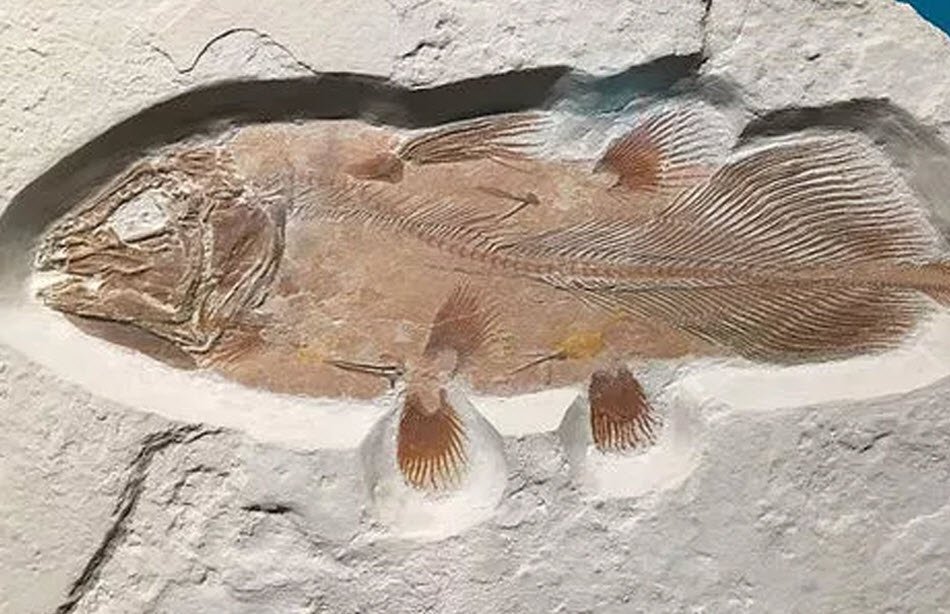
The mysteries of nature still amaze human thinking. Fossil scientists in Britain have unexpectedly found the fossil of a giant fish that survived the extinction of the dinosaurs some 60 million years ago.
The fossil has been identified by fossil scientists at the British University of Portsmouth. Experts estimate that this giant fish is the equivalent of the Great White Shark. This fish looks very strange.
Read More: Dozens of Mummies Were Found in the Saqqara Desert in Egypt
This fish, found in ancient times, is the largest of its kind and was suddenly discovered by fossil scientists. The fish found by scientists is part of the coelacanths species.
“My guess is that this fish was very large,” said Professor Martil, who discovered the fossil.
 Scientists say that even after the extinction of dinosaurs on Earth, this species of fish survived and continued to swim in the ocean. The fish fossil was discovered when Professor Martil was asked to identify a private collection of bones in London. The collector of these bones bought it as a sample. He believed that they were the bones of flying birds. When Professor Martil examined these bones, he found that they were not just one bone but a small plate of many bones. He said that only coelacanths are a species whose bones are like this.
Scientists say that even after the extinction of dinosaurs on Earth, this species of fish survived and continued to swim in the ocean. The fish fossil was discovered when Professor Martil was asked to identify a private collection of bones in London. The collector of these bones bought it as a sample. He believed that they were the bones of flying birds. When Professor Martil examined these bones, he found that they were not just one bone but a small plate of many bones. He said that only coelacanths are a species whose bones are like this.
Conclusion:
- Scientists in Britain suddenly found a giant fish fossil
- This fish survived around the end of the dinosaur about 60 million years ago
- This fish has been identified by physicists at the University of Portsmouth, UK
- What is Happening in Bangladesh Right Now?
- India Sees Highest Suicides In The World – 12.4 Per 1,00,000 As Per National Data
- ANI Files Rs 2 Crore Defamation Suit Against Wikipedia
- Russian Artists Welcome PM Modi with Vibrant Dance in Moscow
- Indian Social Media Platform ‘Koo’, Which Was Once Termed as Twitter Alternative is Shutting Down
- 10 Most Controversial Exposes by WikiLeaks
- Belgian Prime Minister Alexander de Croo Announces Resignation Amidst Election Defeat
- Kangana Ranaut Slapped By CISF Woman Constable at Chandigarh Airport
- Save the Date – Narendra Modi’s Oath Ceremony Details Here!
- International Media on India’s Exit Polls









[…] American country plans to offer 5,000 free passports to highly skilled professionals such as scientists, engineers, doctors, artists, and philosophers from […]